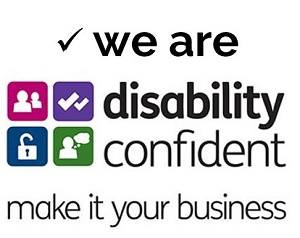JOB SPECIFICATIONS: This guide explains how to specify jobs when advertising employment vacancies.
There is further information on encouraging applications and how to make ‘reasonable adjustments’.
Check the final section covering the DWP Work Choice programme. The scheme provides a voluntary opportunity for disabled people to find a job and stay in work.
The job specification of a work-related vacancy is also called the ‘person requirements‘.
As a rule, job specifications must not exclude disabled people from applying for the post. Most jobs can meet the needs of disabled workers by making ‘reasonable adjustments’. The same would apply for those who have certain health issues.
But, there are some types of work placement that make it impossible to meet this requirement. Employers should be cautious about rejecting a disabled candidate during recruitment. They must base their decisions on the actual performance of each candidate in the interview.
Note: The need to make reasonable adjustments
should not be the determining factor in the recruitment of disabled workers.
Recruiting Disabled Employees: Some Examples:
There is a vacancy for a van driver for a courier company. The job adverts states the person must be able to drive the vehicle. This is an essential part of the job and might exclude some disabled people from applying.
There is a vacancy at a company advertising a job with the need for occasional travel. In this example, the new staff member could travel by train. Thus, this company should not state that the job applicant needs to hold a drivers licence.
Encouraging Job Applications for the Disabled
 If you have a disability or a health issue and looking for work you should contact Jobcentre Plus to find out more. In most cases, they can help with:
If you have a disability or a health issue and looking for work you should contact Jobcentre Plus to find out more. In most cases, they can help with:
- Ensuring the job application process you use is accessible to employers.
- Information on recruitment practices and sourcing workers into employment for disabled people.
- Details on making reasonable adjustments to help someone start a job or keep it.
Jobcentre Plus
Telephone: 0800 169 0190
Telephone: 0800 169 0314
Monday, Tuesday, Thursday and Friday: 9am to 5pm
Wednesday: 10am to 5pm
Check the cost of calls to 0845 numbers.
How to Apply for the ‘Disability Confident Symbol’
 Using a disability confident symbol on job placement advertising is a non discriminatory practice. It shows that employers recruit disabled people and they encourage applications from them.
Using a disability confident symbol on job placement advertising is a non discriminatory practice. It shows that employers recruit disabled people and they encourage applications from them.
There is no charge for signing up as a disability confident committed employer in the United Kingdom.
Note: The new disability confident symbol replaces the older ‘two ticks‘ symbol.
Alternative Formats Disability
Employers must provide information about their vacancies in alternative formats wherever possible. An example would be using large print. Likewise, they must also accept applications in a range of alternative formats. Another example would be using an electronic reply to a job posting.
Recruitment of Disabled Workers: Reasonable Adjustments
A job interviewer can ask a candidate if they need an adjustment for the recruitment process. It may help them to get considered for the job. In other circumstances you can wait to get told by the applicant. Typical adjustments you must try to make include:
- Interviewing wheelchair users on the ground floor of a multi storey building.
- Allowing candidates with a disability to use a computer for the completion of a written test.
Note: The rules on the recruitment of disabled employees change after making a job offer to the candidate. The prospective employer can then ask what adjustments they will need to perform the tasks of the job.
There is some help for employers who need to pay for extra support in their workplace. The financial help is available through an Access to Work grant. But, employers cannot use the grant money for making ‘reasonable adjustments’.
DWP Work Choice Programme for Disabled People
The Department for Work and Pensions runs this specialist disability employment programme called Work Choice. The scheme is voluntary. But, those with complex barriers can get help to secure employment and stay in work.
Employers would be working with a Work Choice provider. You can then offer specialist support to develop the skills and abilities of workers with disabilities. The provider will design a support package for your particular business.
There are no specific restrictions on the type of work employers can offer. But, the work must be for at least 16 hours per week. A Disability Employment Adviser at your local Jobcentre Plus can offer more information.

